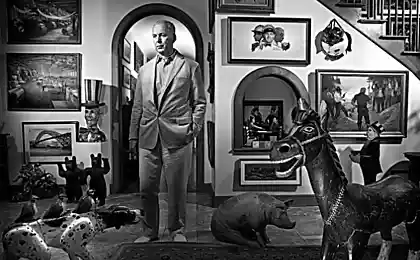807
8 of the rules of communication

1. Do not save up resentment - it's worth it.
You must learn to forgive. It does not need another, and, first of all you. Not necessarily at the same time continue to communicate with the offender.
2. Do not be offended by the children that they do not understand you.
To understand, we must go the same way of life. Between you more time to distance. So it has been and will be. The problem of fathers and children - an eternal problem.
3. Doing good, do not expect good.
Do not expect that others should love you and respect. Learn to enjoy what you do - giving and do good when there is a call of the soul, and not when you are forced to.
"Blessed is he who expects nothing, for he will never be disappointed" (Popov).
4. Do not criticize!
"Criticism is useless because it makes a person to defend themselves and, as a rule - to seek to justify themselves. Criticism is dangerous because it touches a sense of significance and causes offense & quot; (D. Carnegie).
5. Do not argue.
Still not prove anything to anyone. Everyone is at his. Still another will not be able to understand you, because it has a different life experience.
"There is only one way to gain the upper hand in the dispute - is to escape from it" (D. Carnegie).
6. Do not impose your past around if you do not ask about it.
Any action imposed, even love - it's aggression.
7. In assessing the behavior of another person, try to take into account the situation and circumstances.
Our positive image of "I" is largely due to the fact that we are able to forgive myself for inappropriate behavior, citing the unfavorable situation and circumstances, but not forgive others, building a holistic portrait of him on the basis of the specific situation and circumstances.
8. Do not ask and do not expect other similarity with you.
There are different "types" of people, characterized by different levels of consciousness and self-awareness. These species differences between human beings are the same as between the different kinds of animals (ant, elephant, monkey, etc.). But even among individuals of the same species there are individual differences. So do not be surprised the difference between thoughts and actions, motives and values. Try to accept people as they are.
























